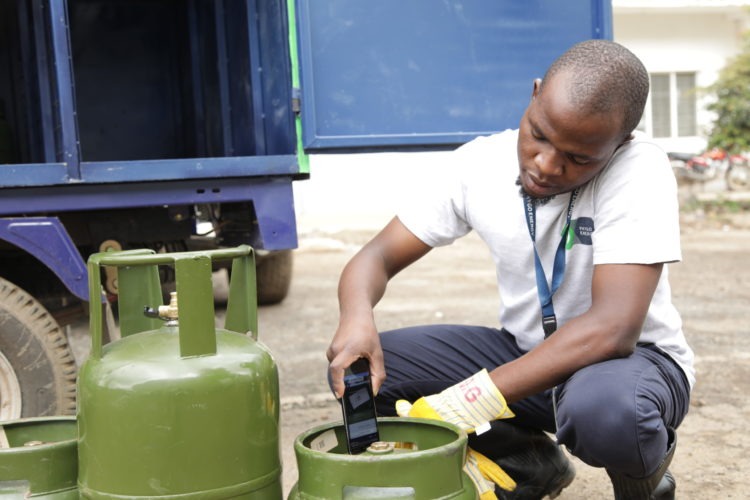PayGo, a Kenya-based energy startup is set to expand its operations to Asia. Its product, the Cylinder Smart Meter, is a portable device for monitoring and managing gas consumption. This gas-as-a-service offering is now going to Vietnam and Bangladesh via a partnership with Saisan.
PayGo maintains a home-delivery process that connects the gas supplier and consumers. The Cylinder Smart Meter is connected to gas cylinders, the customer’s mobile phone, and the cloud. It gathers information for the supplier to know when gas a client is about to run out on gas.
The supplier then contacts a nearby agent to go and refill. It also helps gas retailers to track distribution metrics and extend their reach.
See also: Crenov8 Joins in the Fight Against COVID-19, Unveils Smart Disinfection Gate
Similar to Kenya, most households in parts of Asia need digital pricing plans for essential utilities. The adoption of LPG in developing countries will help reduce air pollution. It also serves as an affordable cooking fuel to replace the use of kerosene and firewood in households.
With the Cylinder Smart Meter, households will be able to utilize PayGo’s pay-as-you-go service via a mobile money service provider.
Saisan is a Japanese conglomerate that also offers energy products to households. Its “Gas One” subsidiary supplies liquefied petroleum gas (LPG) to households and industries. Saisan operates not only in Vietnam and Bangladesh, but also in Mongolia, Indonesia, Cambodia, Nepal, India, Laos, and Thailand.
The partnership between Saisan and PayGo is an extension of the former’s investment in PayGo’s Series B round that kicked off this month.
More on TechGist Africa:
- Uber launches Uber Cash in Africa with Flutterwave & Other Integrations
- Three African Startups Will Pitch at World Bank’s Agriculture Innovation Challenge
- Solar Leasing Startup Sun Exchange Secures $3 Million Funding, Set to Expand across Africa
- Uzoma Dozie’s Sparkle Officially Launches in Nigeria, Secures CBN License
- Facebook to Connect 23 African countries with 37,000-kilometer Undersea Cables













